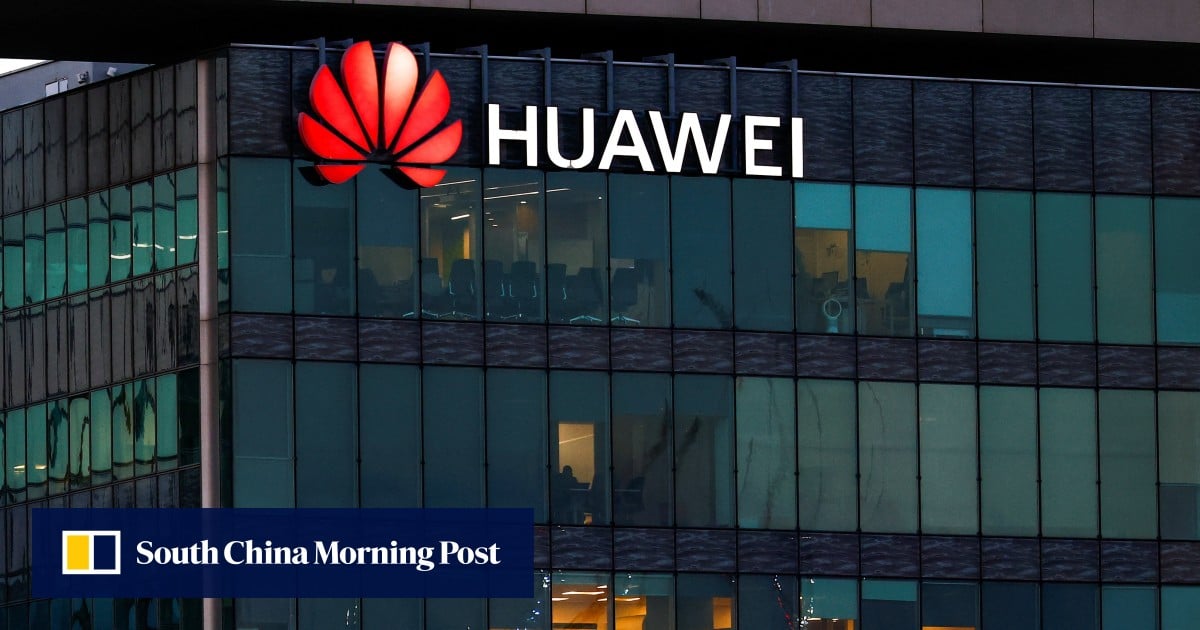Trump's new chip policy puts spotlight on Huawei's secretive Ascend AI chips - CNA
SHANGHAI: New guidelines under US President Donald Trump, which define the use of Huawei Technologies’ Ascend chips “anywhere in the world” as a violation of US export controls, have put a spotlight on the secretive products developed by the Chinese tech giant.
Huawei, a key player in China’s tech rivalry with the US, did not immediately respond to the new guidelines from the US Commerce Department, which explicitly singled out its Ascend chips after scrapping the Biden administration’s country-tiered “AI diffusion” rule.
The Shenzhen-based company has kept details of its AI chips close to its chest, with the only public information coming from third-party teardown reports.
Huawei’s significance in China’s AI sector stems from its ability to produce advanced chips that rival Nvidia’s in performance, thereby cutting the country’s reliance on imports to develop AI models such as those from local start-up DeepSeek.
Nvidia CEO Jensen Huang said earlier this month that Huawei was “one of the most formidable technology companies in the world”, and that China was “not behind” in AI.
Washington’s new guidelines are essentially forcing global tech firms to pick a side - Chinese or US hardware - which will further deepen the tech divide between the world’s two largest economies, analysts said.
“If the guidance is enforced strictly, it is likely to provoke retaliation from China,” said Chim Lee, a senior analyst at the Economist Intelligence Unit (EIU), adding that it could also become a negotiating point in ongoing trade talks between Washington and Beijing.
Huawei introduced its first AI processor, the Ascend 910, in 2019. Amid escalating US sanctions, the company decided to stop officially disclosing information about the series - including details related to release dates, production schedules and fabrication technologies. The chips specified in the new US restrictions, including the Ascend 910C and 910D, have not even been officially confirmed by Huawei.
The Chinese government and official media have not commented on the shift in US policy, as public discussions about the 910 series are often censored in China.
This is the first time an official US government document has specifically mentioned Huawei’s Ascend chips.
The Bureau of Industry and Security, under the US Commerce Department, has warned of risks associated with using Chinese-developed products, as these have likely been developed or produced in violation of export controls, threatening “enforcement actions” from imprisonment to fines on businesses that are found to have violated these rules.
A Canadian research firm last year found that Huawei’s multi-chiplet Ascend 910B contained dies made by Taiwan Semiconductor Manufacturing Company, fanning speculation of violations of US sanction rules.
The Post reported earlier that Huawei’s Ascend 910B AI chip was found in some tests to deliver 80 per cent of the efficiency of an Nvidia A100 when training large language models, but “in some other tests, Ascend chips can beat the A100 by 20 per cent”. Huawei is reportedly looking to start mass production of 910C chips while its 910D samples have been dispatched to selected clients.
Huawei reportedly plans to mass-produce its new Ascend 920 later this year, using the advanced 6-nanometre node. Analysts said it could become an alternative to Nvidia’s H20, which has been banned from sale to China.
EIU’s Lee said the new US rules would have an immediate chilling effect on semiconductor development by Chinese firms, as well as the procurement of domestic AI chips. However, “it’s unlikely to impede China’s adoption and deployment of AI right away”, he said.
This article was first published on SCMP.










